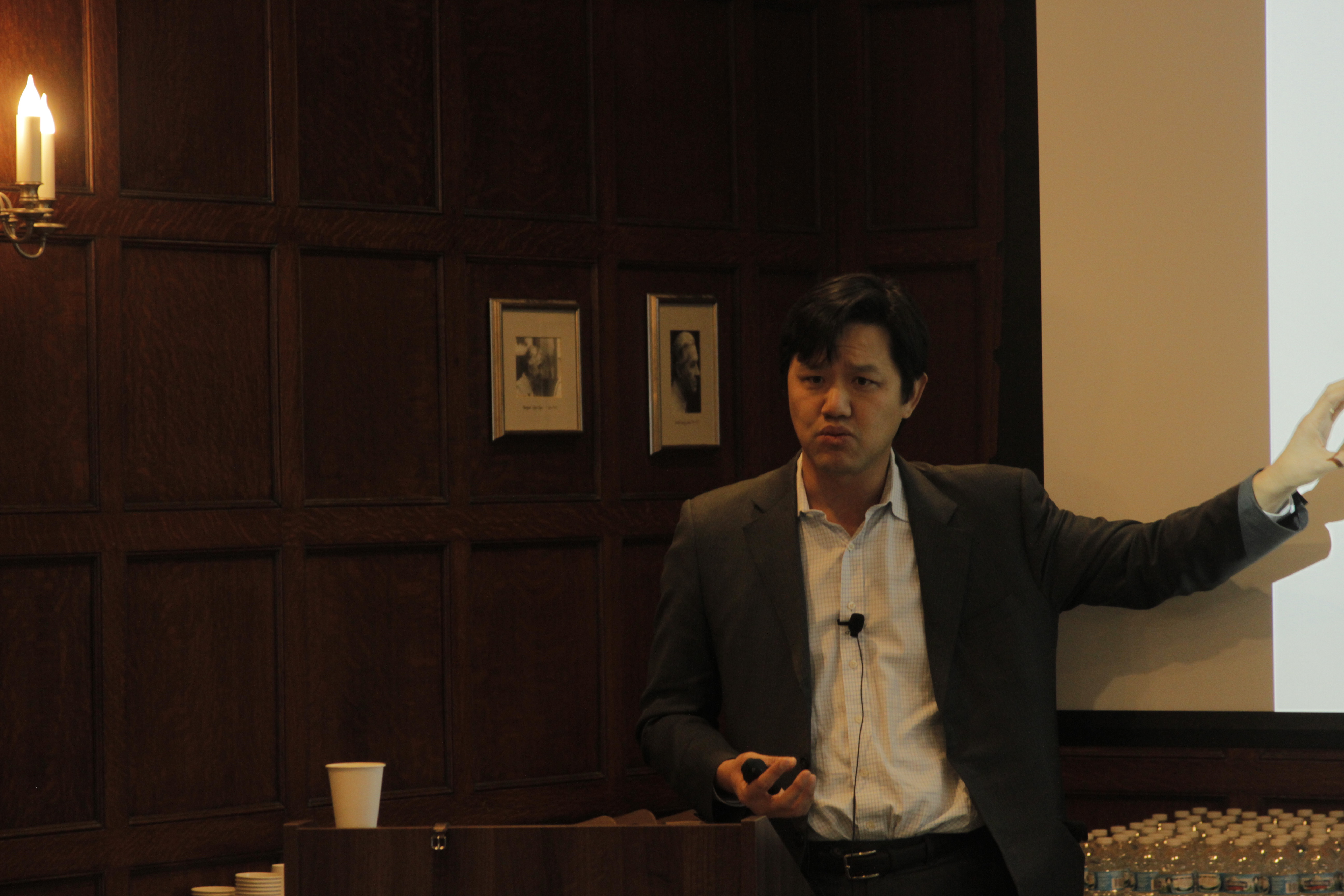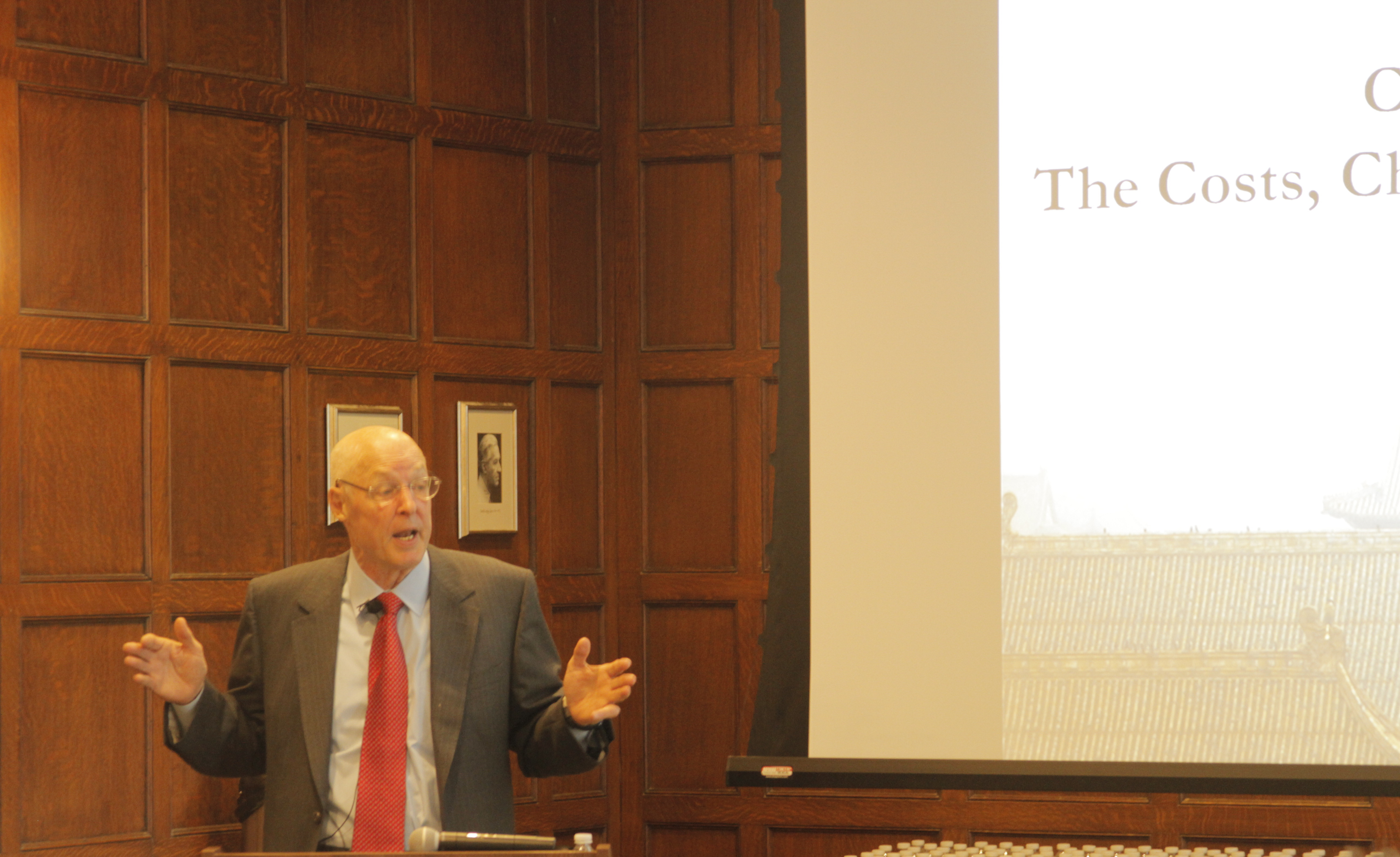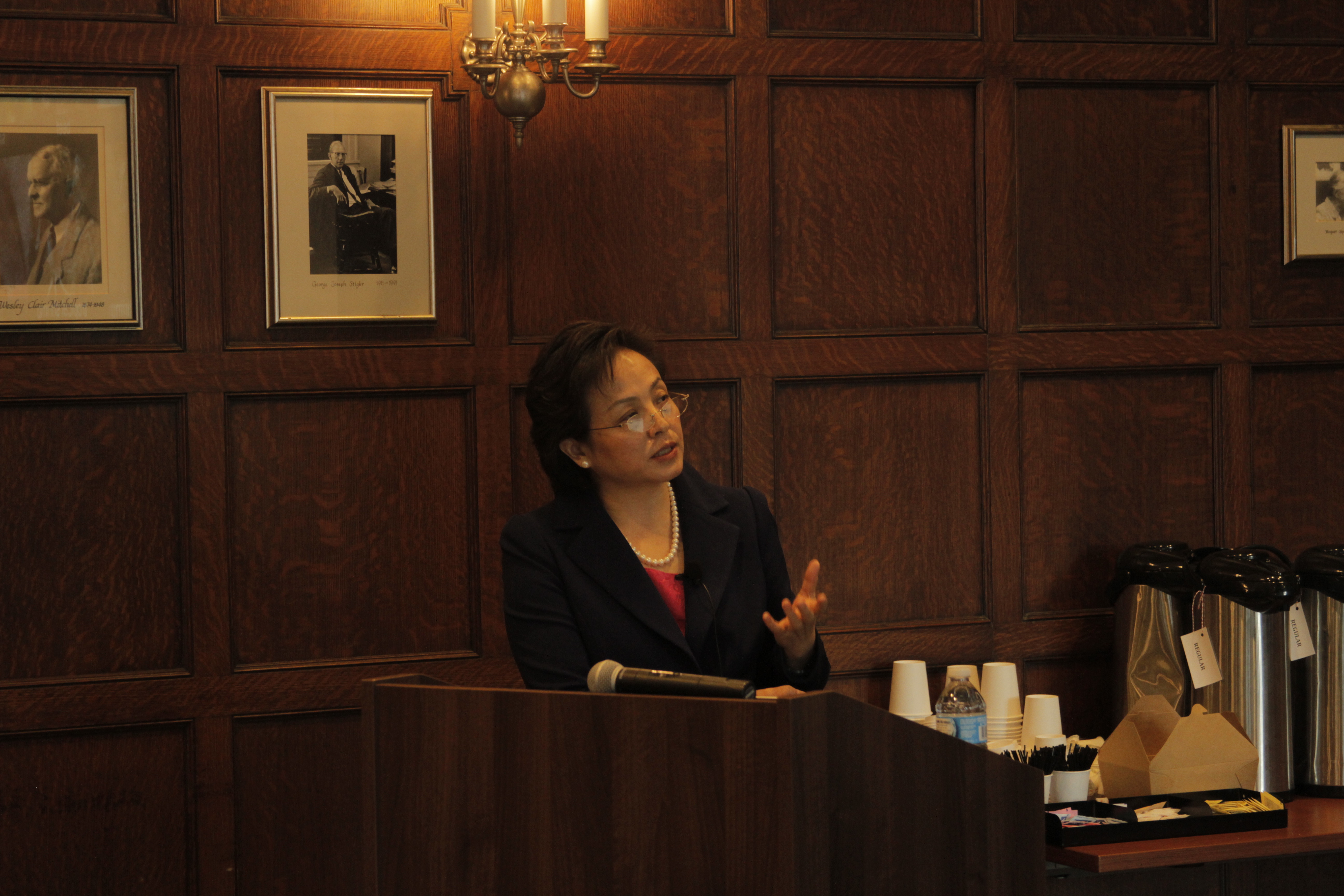The Paulson Institute co-sponsored a conference, “China’s Pollution: The Costs, Challenges and Steps Forward,” with the University of Chicago and the Energy Policy Institute at Chicago (EPIC).
Institute Chairman Hank Paulson gave opening remarks, stressing the importance of sustainable growth in China. “We believe that economic progress is not at odds with a clean economy. In fact, you can’t have one without the other,” Paulson said.
“Huge economic progress has come from China’s urbanization, with hundreds of millions of people lifted out of poverty. But the wheels are starting to come off of the proverbial bus. It’s a flawed model that is creating havoc, with an example being pollution and air pollution.”
The Paulson Institute, he explained, is focused on helping China make the transition to more sustainable economic growth. The recent US-China pact on carbon emissions targets, signed in November, is “historically important,” he added, but both countries need to “move quicker” to tackle climate change. As the world’s two largest emitters of carbon, the United States and China are perfectly positioned to make progress together. “No one moves faster than the United States in terms of innovation,” Paulson said, “and no one can test new technologies and roll them out to scale quicker than the Chinese.”
Michael Greenstone, director of EPIC and a leading international environmental economist and faculty adviser to the Paulson Institute, then presented his findings about the health impact of air pollution in China, based on a study of residents North and South of the Huai River. According to China’s state planning economic model, people living North of the river get free coal and central heating, while people to the South do not. Although the market has brought some heating systems to southern districts, the system remains largely unchanged. Greenstone found that people living North of the river, where coal burning has created heavy air pollution, have life expectancy five years shorter than those living South, where there is less air pollution. “This means that China is losing more than 2.5 billion years in life expectancy,” Greenstone said.
Paulson Institute Director of Conservation Rose Niu also presented research on the impact of China’s “Going Global” economic strategy. Given China’s huge amount of soy bean purchases—some 30 percent of the world’s soy production, she said—Beijing is in a position to help protect the Amazonian rainforests, which have been threatened by the creation of soy farms. “If the Chinese government can send a clear signal that it does not want to import soy with a negative environmental impact, this will be huge,” Niu said.
At the conference, Professor Dali Yang, who is also an Institute faculty adviser, made a presentation with Dongya Huang of Sun Yatsen University about the petroleum sector’s historical power to block China’s environmental protection measures. According to Yang, the fall of the petroleum faction, led by former security tsar Zhou Yongkang, who is now under arrest, may empower the Environmental Protection Bureaus to take action.

Alex Wang, a China environment expert and law professor at UCLA, presented research on the influence of China’s “state capitalism” on the environment, and UC Berkeley law professor Rachel Stern ended the day-long conference with a presentation on China’s new environmental courts, which she said are “not a step toward judicial empowerment,” but rather a “coordination mechanism to help make sure pollution incidents don’t happen.”




